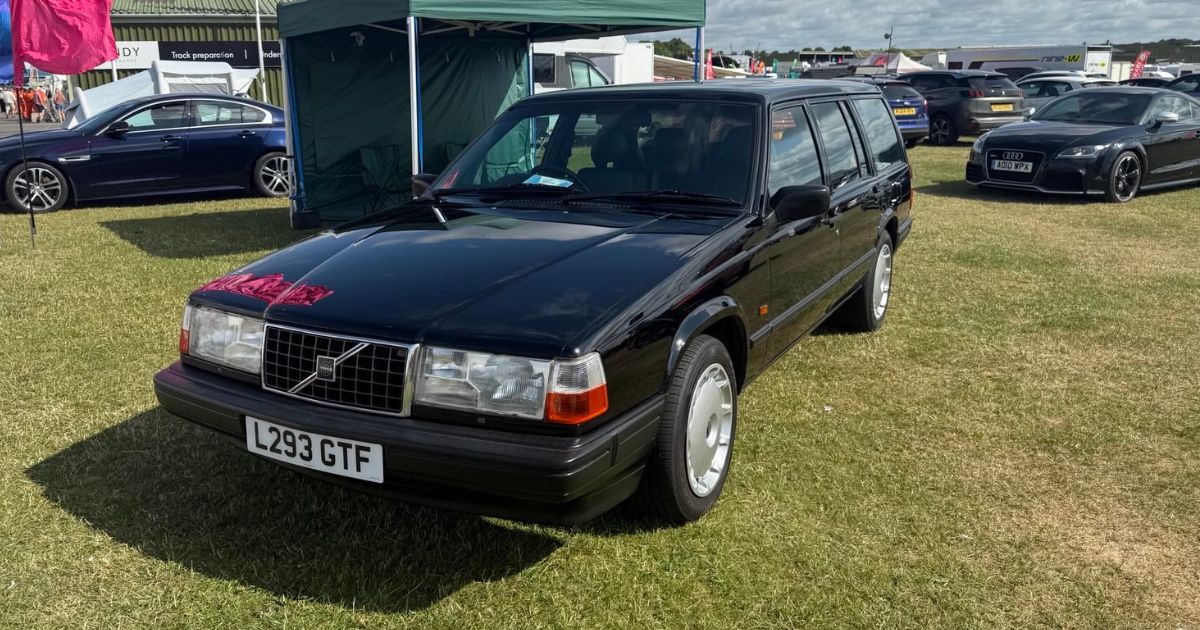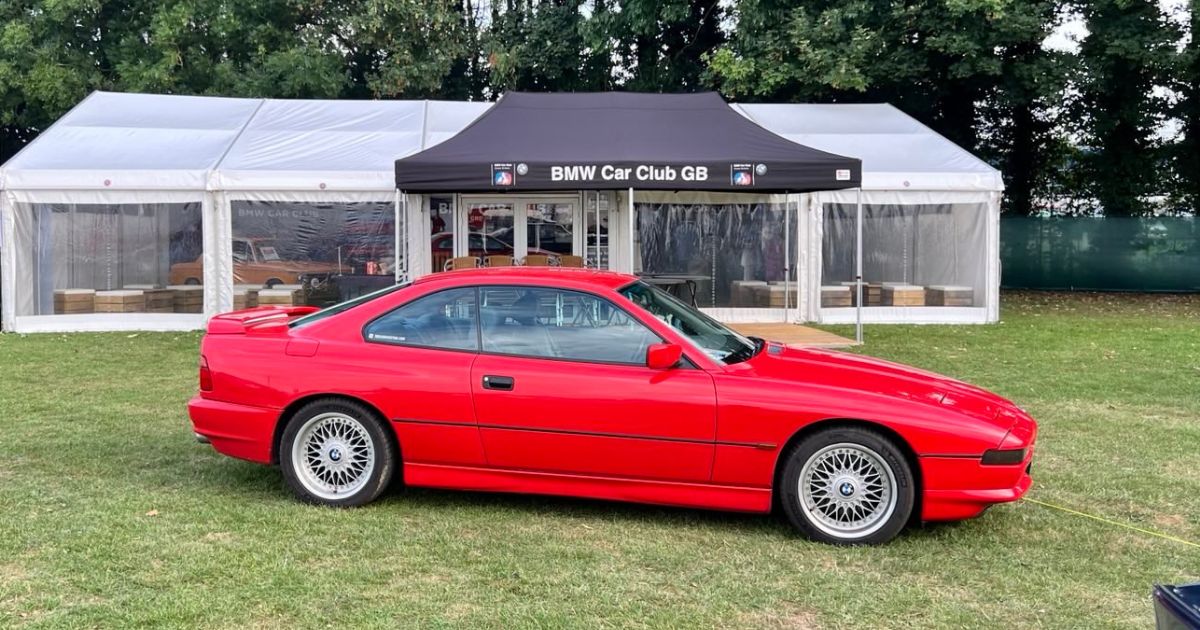Are Classic Cars a Good Investment? (And Can Anyone Invest?)

Adam
Founder, The Car Investor
The classic car market has transformed dramatically over the past decade.
What once seemed like an expensive hobby for wealthy enthusiasts has become a legitimate investment strategy accessible to buyers across all budgets.
But success requires understanding which cars appreciate, how to maintain them properly, and realistic expectations about costs and timelines.
Classic Cars as Investment Assets
Classic cars qualify as alternative investments because they're purchased with the expectation of appreciation rather than transportation utility.
Unlike conventional vehicles that depreciate immediately, certain classic cars gain value due to their rarity, historical significance, or cultural importance.
The key differentiator is collectibility. Not every old car becomes valuable - success depends on factors that create genuine demand among collectors and enthusiasts worldwide.
Why Classic Cars Appreciate in Value
Advertisement
Successful classic car investments share common characteristics:
Rarity and exclusivity drive the strongest appreciation. Limited production numbers, special editions, or cars representing significant automotive milestones create natural scarcity that supports long-term value growth.
Historical significance enhances desirability. Cars that pioneered new technologies, achieved motorsport success, or represent the pinnacle of their manufacturer's capabilities often achieve premium status.
Cultural impact influences collector demand. Vehicles featured in films, owned by celebrities, or representing specific eras develop emotional connections that transcend pure automotive merit.
Condition and originality determine individual car values within any model range. Unmolested examples with comprehensive documentation command significant premiums over modified or neglected cars.
Market Performance vs. Traditional Investments
Recent studies demonstrate classic cars' investment potential. Quality examples have delivered average returns of 97% over 10-year periods, outperforming gold (45%), art (49%), and UK property (50%) while remaining competitive with stock market returns (107%).
However, these figures require context. Unlike stocks or bonds, classic cars involve ongoing costs that reduce net returns. Storage, insurance, maintenance, and transaction fees must be factored into any realistic investment calculation.
The advantage lies in diversification and enjoyment. Classic cars provide portfolio diversification while offering the unique benefit of being driven and enjoyed—something impossible with traditional investments.
Global Market Expansion
Advertisement
The classic car market has become truly international. Emerging economies in Asia, the Middle East, and other regions are driving demand for American and European classics, creating new buyer demographics that support continued appreciation.
This globalization provides resilience against regional economic downturns while expanding the potential market for quality examples. What appeals to collectors in California may find equal enthusiasm in Shanghai or Dubai.
Investment Accessibility Across Budgets

Contrary to popular belief, classic car investment isn't limited to wealthy collectors. Compelling opportunities exist across all price ranges:
Entry-level ($5,000-15,000): Well-chosen examples can deliver solid returns while providing affordable classic car ownership
Mid-market ($15,000-50,000): Offers access to genuinely significant cars with stronger appreciation potential
High-end ($50,000+): Provides access to blue-chip classics with established market performance
The key principle remains consistent across all budgets: buy the best example you can afford of a genuinely desirable car rather than settling for a poor example of an expensive model.
Who Can Invest in Classic Cars?
Advertisement
Anyone willing to accept the responsibilities of ownership can invest in classic cars. However, success requires:
Financial stability beyond the purchase price to fund ongoing maintenance, storage, and insurance costs
Patience for long-term appreciation rather than quick profits
Storage facilities to protect the investment from weather and theft
Alternative transportation to avoid excessive wear from daily use
Age considerations primarily affect insurance rather than investment capability. While young drivers may face higher premiums, specialist insurers now offer competitive classic car policies across all age groups.
Real-World Investment Example: Updated Analysis

Our BMW 840 investment demonstrates realistic expectations. Purchased for £6,000 in 2016, the car required £4,910 in maintenance over five years while being driven and enjoyed for 6,000 miles.
Current valuation of £16,500 represents a 51% gross return (8.6% annually). After maintenance costs, the net return remains positive while providing five years of driving enjoyment - an outcome impossible with traditional investments.
This example illustrates key principles:
Quality cars can appreciate even when used regularly
Maintenance costs are significant but manageable
Realistic returns justify the investment when enjoyment is factored in
Proper documentation and care preserve value
Market Risks and Considerations
Not all classic cars will appreciate. Common models, poor examples, or cars lacking collector appeal may stagnate or decline in value. Thorough research before purchase is essential.
Market cycles affect all collectibles. Economic downturns can reduce demand temporarily, though historically, classic car markets recover and continue growing over longer periods.
Maintenance costs can exceed expectations. Complex or exotic cars may require specialist knowledge and expensive parts that erode investment returns.
Storage and insurance represent ongoing costs that traditional investments don't require. These must be factored into return calculations.
Investment Strategy Guidelines
Focus on cars you understand and appreciate. Passion for the marque or model provides motivation for proper care and helps identify quality examples.
Prioritize condition over rarity. A perfect example of a common car often outperforms a poor example of a rare model.
Buy at the right price. Overpaying eliminates profit potential regardless of future appreciation.
Maintain properly. Deferred maintenance destroys value faster than any market appreciation can restore it.
Think long-term. Classic car investment requires patience - significant appreciation often takes 5-10 years or more.
Diversification Benefits
Classic cars provide portfolio diversification that traditional asset classes cannot match. Their value drivers - rarity, emotion, cultural significance - operate independently of stock markets, bond yields, or real estate cycles.
This independence creates stability during market volatility while providing inflation protection through tangible asset ownership.
The Future of Classic Car Investment
Several trends support continued market growth:
Electrification makes internal combustion engines historically significant rather than obsolete
Digital natives are discovering analog driving experiences through classic cars
Global wealth creation expands the potential collector base
Limited supply ensures scarcity of quality examples
However, changing mobility preferences and environmental consciousness may affect long-term demand for certain vehicle types.
Making the Investment Decision
Classic car investment works best when combined with genuine enthusiasm. The most successful investors are those who would own these cars regardless of financial returns, ensuring proper care and long-term commitment.
Consider your motivation carefully. If pure financial returns are the goal, traditional investments may prove more suitable. If you seek portfolio diversification combined with automotive passion, classic cars offer unique advantages.
The Verdict: Investment Potential Confirmed
Classic cars can indeed be excellent investments when approached with realistic expectations, proper research, and long-term commitment. Their ability to provide enjoyment while appreciating makes them unique among investment assets.
Success requires selecting the right cars, maintaining them properly, and accepting the associated costs and responsibilities. For those willing to meet these requirements, classic cars offer compelling returns alongside driving pleasure that no traditional investment can match.
The bottom line: Classic car investment works, but it's not passive income. It requires active engagement, ongoing expense, and genuine appreciation for automotive history. Done correctly, it provides both financial returns and irreplaceable experiences.
Investment advice: Start with cars you understand and can afford to maintain properly. Focus on quality over quantity, prioritize originality and condition, and remember that the best classic car investment is one you'd be happy to own regardless of its financial performance.
No spam. We'll only email you when it matters.

About the Author
Adam is the founder of The Car Investor, combining his passion for classic cars with data-driven investment strategies to help collectors maximize their returns.
View all articles →Related Articles

How to Learn to Work on Cars: 8 Simple Steps
Plenty of people dream of being able to fix their own car. There’s something about the inner-workings of a vehicle that just fascinates people. Learning to work on your own car can be a great way to save money, and it can also be a fun hobby.

Is Driving Fast Bad For Your Car?
Driving fast is bad for the engine, drivetrain, suspension and various other components of a car as it causes them to wear more quickly. However, modern cars are built to tolerate speeds much higher than are legal on any public road.

Are Jaguars Good Cars? (And Are They Worth The Money?)
Jaguars are some of the most exceptional high-quality cars around. Their reputation for reliability is improving, their looks are magnificent, and their performance is sublime. Jaguar has a long history of producing great cars, and is continuing to innovate as we move into the electric vehicle era.
Advertisement